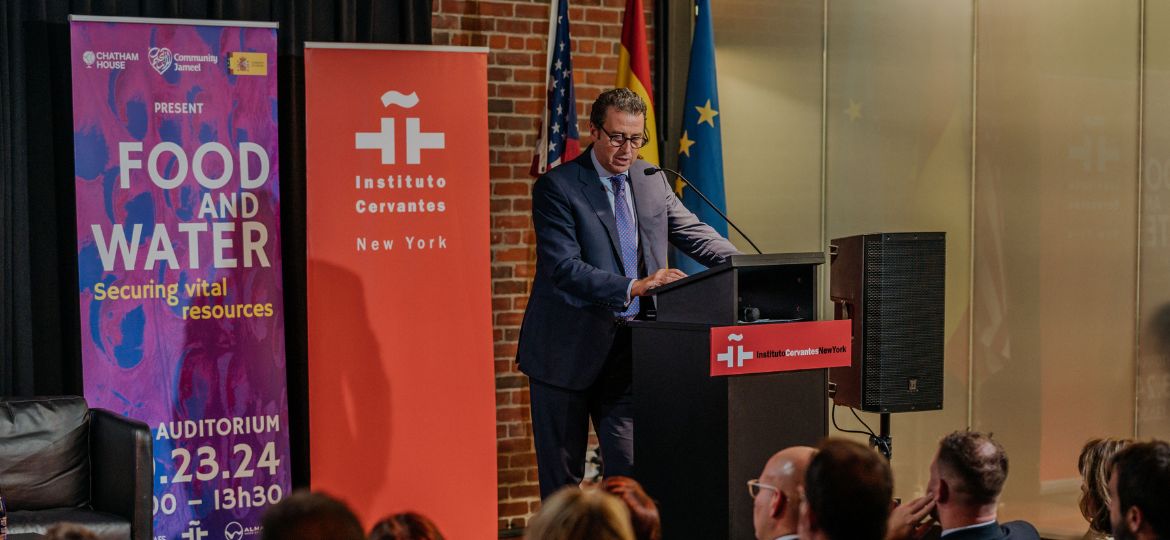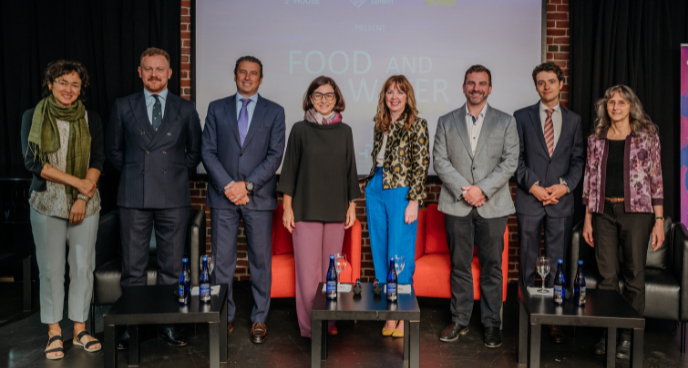
Almar Water Solutions participates in high-level discussion at UNGA79 on food and water security
- Carlos Cosín, CEO of Almar Water Solutions, emphasized the importance of desalination and water reuse in addressing global water security challenges in agriculture.
- The event, organized as part of UNGA79, brought together leaders from governments and international organizations to discuss how water stress and food insecurity are impacting global stability.
New York, USA – September 25, 2024 . On the occasion of the 79th session of the United Nations General Assembly (UNGA79), Almar Water Solutions joined key global players in a pivotal discussion titled “Food and Water: Securing Vital Resources.” The event, held on the sidelines of New York Climate Week, brought together policymakers, academics, and leaders from the public and private sectors to explore the growing threat of water and food insecurity to global stability.
The session, co-organized by the Spanish government, Community Jameel, Chatham House, and MIT’s Abdul Latif Jameel Water and Food Systems Lab (J-WAFS), delved into how water stress and food insecurity, compounded by climate change, migration, and conflict, are transcending national boundaries and becoming key drivers of global instability.
Representing Almar Water Solutions, CEO Carlos Cosín contributed valuable insights into the session, focusing on the critical role of water in agriculture and overall water security. He stressed the need for innovation in water management, particularly in the agricultural sector, which remains the largest consumer of water worldwide. “In many regions, traditional irrigation methods still persist despite the increasing scarcity of water, impacting the sustainability of our resources,” Cosín stated.
He highlighted the importance of adopting advanced technologies such as desalination and water reuse, both of which are becoming essential tools to ensure a sustainable water supply for agriculture. Countries like Spain are at the forefront of this transformation, leveraging desalination to support agriculture in water-scarce regions. Cosín also pointed to successful initiatives in water reuse across Singapore and the United States, where reclaimed water is increasingly being used for irrigation, alleviating pressure on freshwater resources.
The discussion also covered broader water security issues beyond agriculture. Cosín underscored that water scarcity is not only a matter of environmental concern but also a geopolitical issue that can lead to tensions between regions. However, he emphasized that water can also be a tool for cooperation, calling for international agreements and cross-border collaboration to manage this precious resource effectively.

The event showcased the Spanish government’s initiatives in preserving its water resources both domestically and internationally. Additionally, insights from Chatham House’s UK-funded Fair Water Footprints Partnership shed light on addressing global trade-related water risks, while MIT’s Jameel Index previewed new data on the impact of climate change on global food trade.
In his closing remarks, Cosín called for collective efforts to address global water challenges, emphasizing the need for collaboration between governments, the private sector, and international organizations. “At Almar Water Solutions, we are deeply committed to advancing innovation and sustainability in water management to ensure that water remains a source of life and cooperation for future generations,” he concluded.

